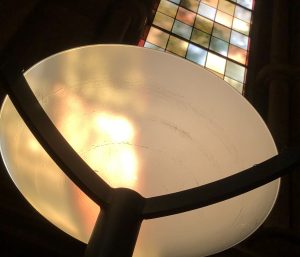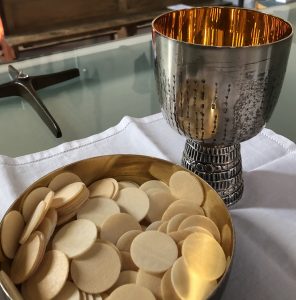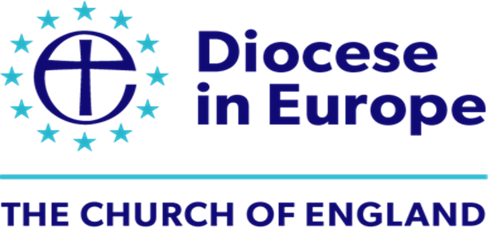Baptism
 At Baptism children and adults are welcomed into the Christian faith and into the worldwide Church. Baptisms will, for the most part, happen as part of the usual Sunday morning service. Very occasionally, and at the Chaplain’s discretion, this service will not be a Eucharist. For Baptism we welcome people at any stage in life, as long as they have not been baptised already elsewhere.
At Baptism children and adults are welcomed into the Christian faith and into the worldwide Church. Baptisms will, for the most part, happen as part of the usual Sunday morning service. Very occasionally, and at the Chaplain’s discretion, this service will not be a Eucharist. For Baptism we welcome people at any stage in life, as long as they have not been baptised already elsewhere.
To discuss and plan your Baptism contact the Chaplain chaplain@stcatherines-stuttgart.de
Details required for baptism should be submitted on the following form: BAPTISMFORM
Occasionally there are special circumstances – including an adoption, a traumatic birth, and other examples, when Baptism may not be immediately appropriate. Once again please make contact with the Chaplain to discuss a wish for a Thanksgiving or similar.
N.B. To avoid disappointment, please do not book arrangements with godparents (especially overseas godparents) until a date has been agreed with the Chaplain.
The Eucharist
A Short Guide to the Anglican Eucharistic Practice
If you have not attended a Eucharist (Holy Communion) Service before, you might wonder what it is all about, what goes on, and why. Rituals of any sort can be very difficult to appreciate without some explanation.
This short introduction has been written for those possibly attending a Eucharist Service for the first time, perhaps having no previous contact with the Christian Church, coming from another faith or none. We hope this will assist in understanding the form and content of the service so that its meaning can be better appreciated, and that you might be encouraged to come along to see for yourself. If you make it known that this is all new to you, a member of the congregation will be more than happy to quietly take you through the service.
Why the Eucharist is central to Christian worship
Christian practices vary across different denominations, and there have been plenty of disputes on the finer points of theology, but central to almost all Christian Churches whether Roman Catholic, Anglican, Lutheran or other mainstream Protestant, is the coming together as a community to celebrate the Eucharist or Lord’s Supper.
The Eucharist (a word derived from the Greek meaning “to thank”) commemorates Jesus’ Last Supper with his twelve disciples. Later that night he was arrested, tried and executed by the combined efforts of religious leaders and the Roman governor.
During this last meal with his friends, Jesus took bread,
broke it and gave it to his disciples. He also shared with them drinking wine from a cup (chalice), and told his disciples, “Do this in remembrance of me”.
The early Christians instigated the practice of celebrating the Eucharist as a communal act, to give a sense of being a community. (See the New Testament Epistle 1 Corinthians 11.23-29).
Since about 50 CE this is what Christians have done together – down through the centuries and across continents. It is one of the rituals, aside from baptism which unites all Christians in a basically similar practice, although unfortunately not all churches permit all Christians to take communion (to partake of the bread and wine given out) if they are of another denomination. Plenty of effort is being devoted to try to figure out a way of getting back to accepting each other’s way of doing things, though. It keeps theologians busy!
The Anglican Church welcomes to Communion all those who are baptised and who are communicant members of other Churches which subscribe to the doctrine of the Holy Trinity. It is our custom at St. Catherine’s to receive communion stood in a large circle around the altar. Currently it is not permitted to intict (dip) your wafer in the chalice. Receiving the wine by drinking from the chalice is optional. Wafer only is still considered a valid form of Communion.
You are welcome to join us, even if you do not wish to receive Communion. When the others put their hands out to receive the bread, simply cross your arms over your chest, and you will be given a prayer of blessing.
A Short Description of the Service
We prepare for the Eucharist by: –
-Confessing our sins and failings and receiving God‘s forgiveness.
-Reading the Scriptures, God’s Word, and hearing the Good News to be found there.
The Peace.
We exchange greetings in the Lord‘s name.
The Eucharist is based on the Four Acts which Jesus did at the Last Supper with his disciples:
Jesus took the bread and wine.
We bring our lives, our hopes and fears, our successes and failures.
We bring our time and our talents and our finances all in the service of God.
We bring our Special Intentions; to love more, grow more, share more….
Jesus blessed the bread and wine.
We bless and praise God for his Saving Acts;
for the creation and preservation and all the blessings of this life, but above all, for sending
his Son to share our life.
Christ has died, Christ is risen, Christ will come again!
Jesus broke the bread.
‘We who are many, are one Body, for we all share in the one Bread.’
Jesus was broken on the Cross but his Spirit is with us, and stands with us in our pain, in our brokenness, on our dark days.
Jesus gave out the bread and wine
The words of the Centurion –
“Lord I am not worthy to receive you but only say the word and I shall be healed.“
The Body of Christ keep us in eternal life.
May we who share Christ’s Body live his risen life. We who drink his cup bring life to others.
We whom the Spirit lights give light to the world.
And so in having come to the Eucharist with all that is on our hearts
we take the blessing of the Eucharist back into our lives, into the new week.
A service of Ante Communion can offer the faithful a pause in their Eucharistic worship, to allow the lay leadership of worship and to resist the temptation to slip into ‘communion with everything, with or without a priest.’
When a priest is not available extended Communion is also a possible option – see
https://europe.anglican.org/downloads/forms/church/extended-communion-service.pdf









